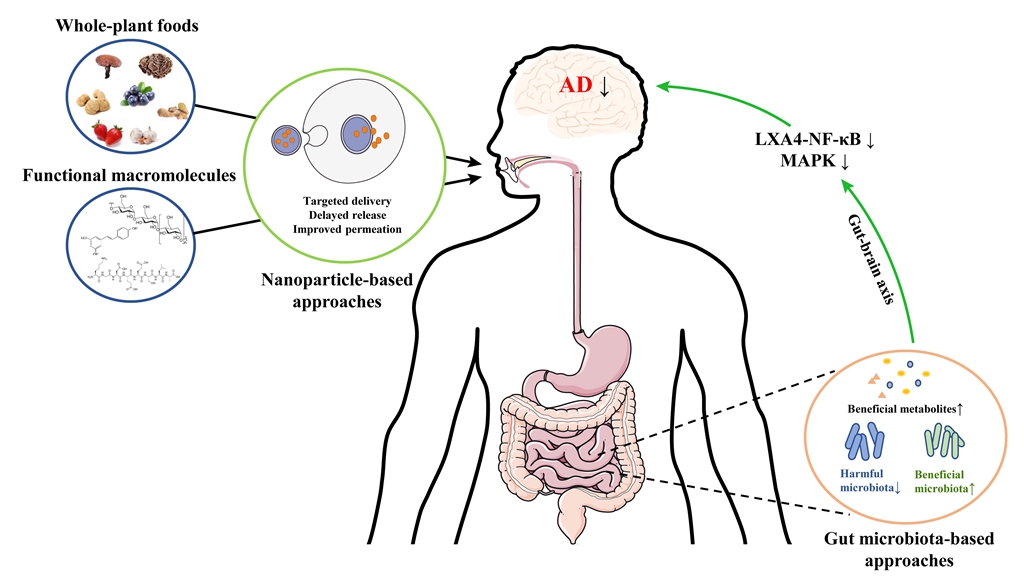
With the increasing aging of the population all round the world, the health problems of the aging population cannot be ignored. Alzheimer's disease is the most important type of dementia, and it is the "fourth killer" that threatens the health of the elderly. However, the existing theories cannot fully reveal the pathogenesis of Alzheimer's disease, and no effective drugs and treatment have been found.
In this newly published review article entitled "Whole-plant foods and their macromolecules: Untapped approaches to modulate neuroinflammation in Alzheimer’s disease", researchers introduced the anti-neuroinflammation effects of whole-plant foods and their macromolecules, and explored their potentials to prevent and/or alleviate Alzheimer's disease. Studies have shown that continuous neuroinflammation can trigger Alzheimer's disease and accelerate its development.
"Exploring natural active products with anti-neuroinflammatory effects can effectively prevent and alleviate Alzheimer's disease, and will help improve the health problems of the elderly." Professor Ding told the reporter of "China Science News" that whole-plant foods are highly functional. Molecules including polysaccharides, polyphenols, and peptides have a significant improvement effect on neuroinflammation.
Professor Wu and Professor Ding’s team reviewed that neuroinflammation in activated microglia is mainly regulated by the LXA4-NF-κB and MAPK signaling pathways. Whole-plant foods, such as mushrooms, berries, turmeric, and garlic, can inhibit neuroinflammation by regulating the two signaling pathways of LAX4-NF-κB or/and MAPK, thereby improving cognitive impairment. Their activities may be attributed to active macromolecules, including polysaccharides, polyphenols, and peptides. However, the interactions between different ingredients in whole-plant foods may produce a synergistic effect to regulate neuroinflammation.


